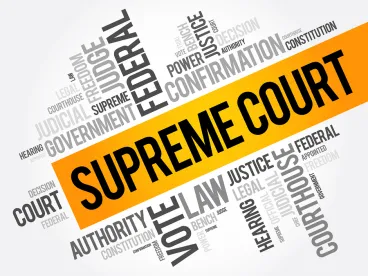The decision this week of the Supreme Court of the United States in Epic Systems Corporation v. Lewis will likely prove important on issues other than the arbitration of labor disputes. An extended passage in the opinion (from page 19 through 21 of the slip opinion) is likely to alter the deference rule of Chevron and perhaps that of Auer as well. (Chevron deference pertains to statutes; Auer deference pertains to regulations.)
The Court appeared to hold that Chevron does not apply where two federal agencies formally disagree over a statute’s meaning. The Court stated:
Another justification the Chevron Court offered for deference is that ‘policy choices’ should be left to Executive Branch officials ‘directly accountable to the people.’ . . . But here the Executive seems of two minds, for we have received competing briefs from the Board and from the United States (through the Solicitor General) disputing the meaning of the NLRA. And whatever argument might be mustered for deferring to the Executive on grounds of political accountability, surely it becomes a garble when the Executive speaks from both sides of its mouth, articulating no single position on which it might be held accountable.
The upshot of this holding would appear to be that, for example, where the independent Occupational Safety and Health Review Commission (OSHRC) and the Occupational Safety and Health Administration (OSHA) disagree as to the meaning of the Occupational Safety and Health Act (OSH Act), such as its General Duty Clause, a reviewing court of appeals would not defer to either but would decide the issue for itself de novo.
The decision also contains this unusual statement, somewhat out of the blue: “No party to these cases has asked us to reconsider Chevron deference.” This seems to be a hint that such a request would be seriously considered. The Court recently extended a similar but stronger hint with respect to Auer deference.
The decision also reiterates two principles of deference that are often overlooked, sometimes even by the Court itself. One of these, the decision emphasizes, is that, as Chevron itself stated, deference is not due unless a “court, employing traditional tools of statutory construction,” is left with an unresolved ambiguity. The Court then applied one of these traditional tools—the canon against reading conflicts into statutes. It held that that canon, “along with the other traditional canons we have discussed, is more than up to the job of solving today’s interpretive puzzle. Where, as here, the canons supply an answer, ‘Chevron leaves the stage.’” This re-emphasis on the canons of construction would clearly apply to Auer deference too.
The other deference principle that the Court reiterated was that an agency will not receive deference if its interpretation of a statute that it administers would “limit[] the work of a second statute” that it does not administer. The Epic Systems decision involved the National Labor Relations Board’s construction of the Federal Arbitration Act and the National Labor Relations Act (NLRA). The Court rejected the idea that it would “agree that Congress implicitly delegated to an agency authority to address the meaning of a second statute it does not administer. One of Chevron’s essential premises is simply missing here.” The Court explained further:
An agency eager to advance its statutory mission, but without any particular interest in or expertise with a second statute, might (as here) seek to diminish the second statute’s scope in favor of a more expansive interpretation of its own—effectively “‘boot-strap[ping] itself into an area in which it has no jurisdiction.’” [Citation omitted.] All of which threatens to undo rather than honor legislative intentions. To preserve the balance Congress struck in its statutes, courts must exercise independent interpretive judgment.
The upshot of this language is that one can more clearly argue that OSHA would not be entitled to deference if it were to construe the OSH Act in a way that affects the reach of, for example, the Americans with Disabilities Act—a question that is now before the OSHRC and that will be argued on June 7, 2018. (This writer expects to participate in that argument.)
Employers with cases pending in which Chevron deference (or, depending on the exact issue, Auer deference) is in dispute may want to consider filing a letter with the relevant court or agency invoking the Epic Systems decision.




 />i
/>i

